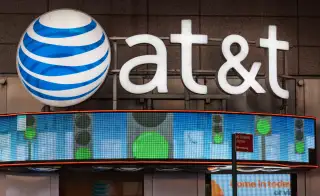Broadband CEOs Admit There's No Real Reason For Data Caps Besides Boosting Profit

AT&T and other internet providers have begun subtly implementing data caps—for home, wired use, not on LTE. The constrictions are irritating consumers, who potentially have to spend more money for less. For cell phone plans, which largely moved away from unlimited data a few years ago, capped service is the standard and consumers expect it. It makes sense when you think about it; there are so many people using a relatively small number of towers, and wireless transmission means limitations.
But unlike your phone, your cable internet is wired. In fact, you can see the wires everywhere, hanging on utility poles. There, fiber optic cables can transfer data incredibly quickly, making internet data caps a harder a pill to swallow.
It turns out your gut is probably right. There's very little basis to support the notion that there's a scarcity in internet bandwidth—it's even something the chief executives of communications carriers readily admit, as TechDirt recently noted.
Dane Jasper, CEO of Sonic, a California-based internet provider, told CIO that "The cost of increasing [broadband] capacity has declined much faster than the increase in data traffic." Additionally, he noted that the company's costs for supporting broadband had dropped from 20% of revenue to 1.5% in the past few years.
Other CEOs have said the same. After noting the declining costs of technology to support high-speed data, Frontier Communications CEO Dan McCarthy told trade publication Fierce Telecom, "There may be a time when usage-based pricing is the right solution for the market, but I really don't see that as a path the market is taking at this point in time."
But wait—there's more!
The most damning piece of evidence against the capping model—which is essentially taking a step back and providing less, technology-wise—is from the CEO of a company that had a cap and abandoned it when it was clear that it wasn't necessary.
According to St. Louis broadband company Suddenlink CEO Jerry Kent, companies don't have to spend a lot to keep up with customers' data demands. "Those days are basically over," he said on an investor call last year, "and you are seeing significant free cash flow generated from the cable operators as our capital expenditures continue to come down."